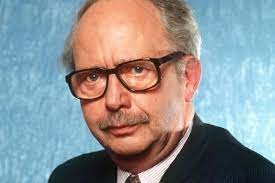Coser, A. Lewis

Bio: (1913-2003) German-American sociologist. Lewis Coser emigrated to the United States after World War II, where he received his doctorate in 1954 from Columbia University, under the mentorship of Robert Merton. He later taught sociology at several universities including the University of Chicago. Coser's greatest contribution was in the field of sociology of conflict, and these studies were influenced by the ideas of Simmel, Marx, Durkheim, and functionalism.
In his book The Functions of Social Conflict (1956), Coser views conflict as a struggle over values and scarce resources of status, power, and wealth. Rivals can be neutralized, damaged, or eliminated from combat. The causes of conflict can be: economic, the consequence of social roles, family, etc. He wants to understand how structural factors affect the emotional motives of conflict. Conflict can be the cause of change in the whole society, and the most important consequences are social innovation and increased centralization of power. Coser, therefore, studies the functions of social conflicts and singles out several. The first function is violence as a goal in itself, when individuals, due to the inability to succeed by other means, commit violence in order to change something. Another function of conflict is to serve as an alarm that there are problems in society that need to be resolved. The third function is catalytic - violence can act as a motive to start solving a social problem, and it can also cause a counter-effect, causing even higher levels of violence in society. In this sense, the functions of social conflicts can be both positive and negative.
Coser also studied the role of intellectuals in American society in the book Men of Ideas (1965). He singles out five main types of intellectuals: independent, academic, creative, those in politics, and those in the mass culture industry. He believes that American society has become too bureaucratic and prevents the development of intelligentsia and ideas that could solve social problems. He frequently collaborated with his wife Rose Laub Coser, who was also a prominent sociologist herself.
Fields of research
Bureaucracy Conflict Emotions Innovation Intelligentsia (Social Group) Morality Politics Power, Political Role, Social ViolenceTheoretical approaches
FunctionalismMain works
The Functions of Social Conflict (1956);
Men of Ideas: A Sociologist’s View (1965);
Continuities in the Study of Social Conflict (1967);
Greedy Institutions: Patterns of Undivided Commitment (1974);
Masters of Sociological Thought (1977).

